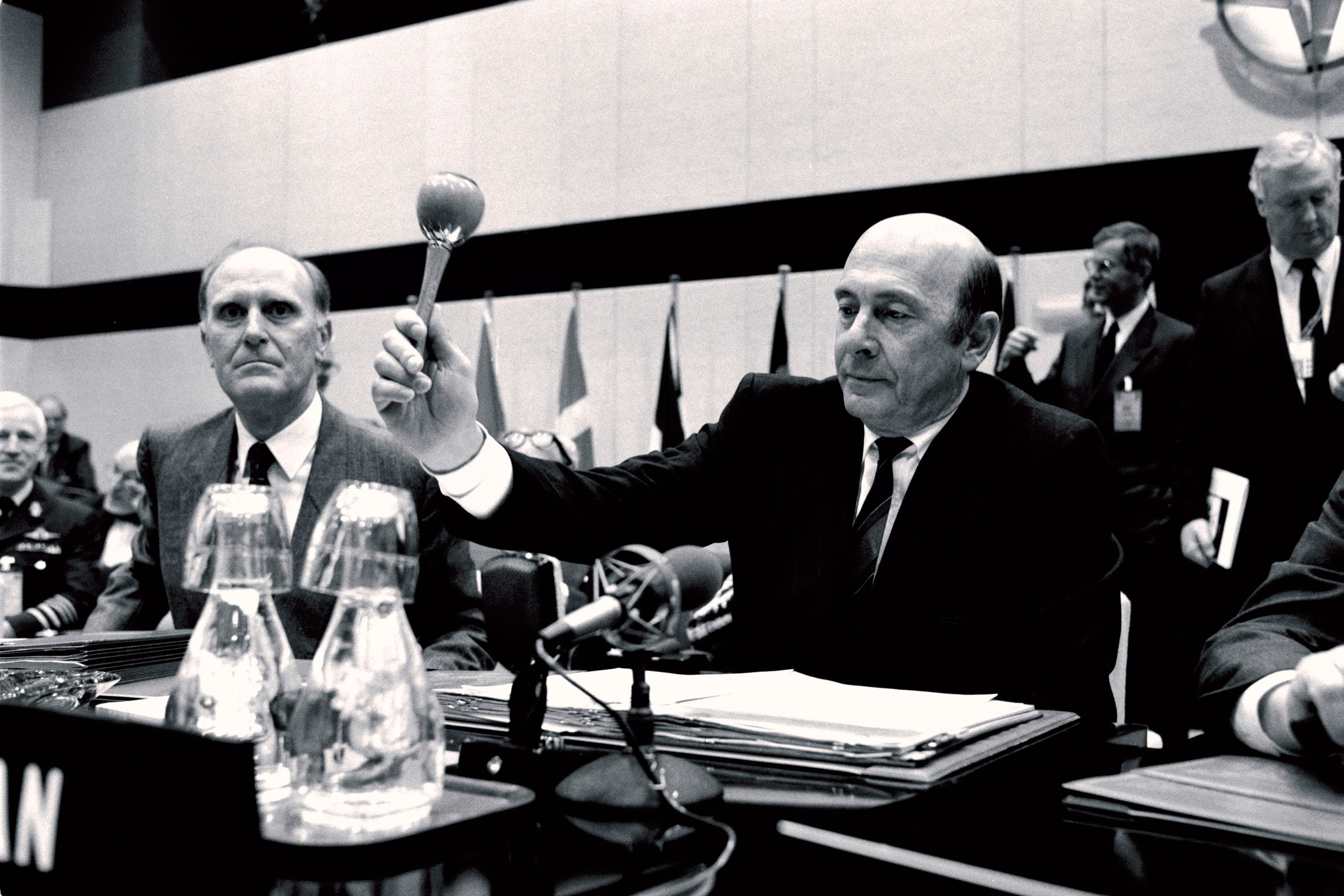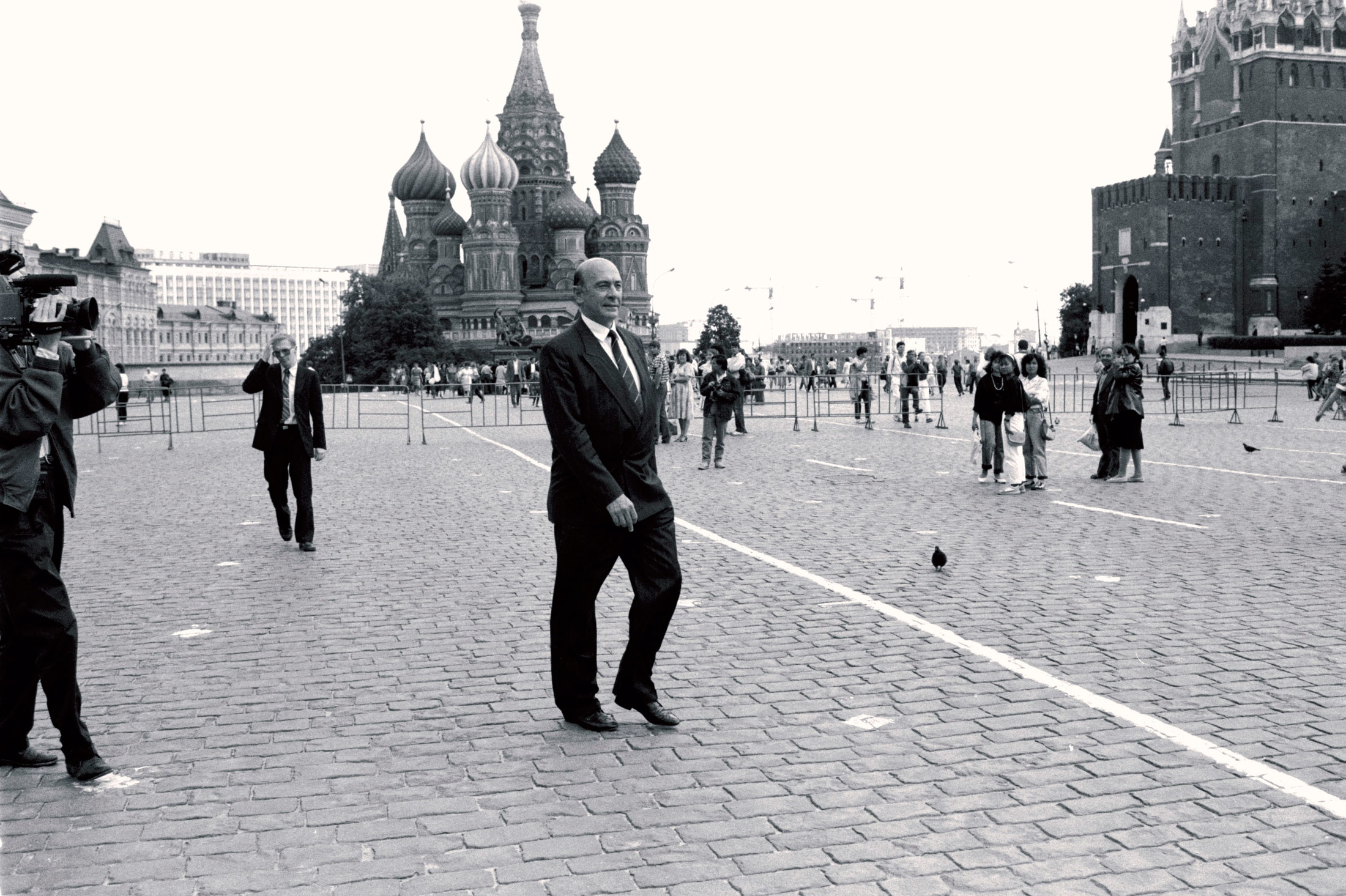Ever the workaholic, even while undergoing cancer treatments, Wörner remained engaged in NATO business regarding Bosnia as much as possible. NATO used force for the first time on 28 February 1994, shooting down four Bosnian Serb planes that had breached a UN imposed no-fly zone. He was in his hospital bed, but insisted on holding a press conference.
Wörner also returned to Brussels to chair a Council meeting on 22 April 1994. The Allies were in deadlock over whether to respond to attacks launched by Serbian forces on a UN declared safe zone. With his doctor sitting behind him as the meeting ran into the late hours of the evening, Wörner’s presence pushed NATO to expand the no-fly zone and accept a broader role in Bosnia.
Wörner passed away on 13 August 1994, a year before NATO would launch Operation Deliberate Force and deploy a peacekeeping force to Bosnia and Herzegovina.


